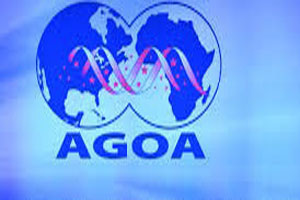
Agoa need to be extended as it is of mutual benefit to SA and US
YarnsandFibers News Bureau 2015-03-17 14:00:00 – South AfricaAgoa was passed by the US Congress in May 2000 to facilitate trade between sub-Saharan African countries and the US. It was intended to assist African countries to improve their export performance, enhance economic development and reduce poverty. It provides duty-free access to the US market for 6 400 products from about 40 countries.
During the week of March 2 to 6, South African delegation were in the US to make the case for the African Growth and Opportunity Act (Agoa) to be extended by a further 15 years.
Most African countries have not been as successful, while some African countries have been able to use this preference to attract foreign investment and increase their production and exports of mainly clothing and textiles.
However, Africa is poised to become the next global platform for the exports of clothing and textiles. South Africa is vital to the emerging regional value chains from which African countries can build their industrial development and exports.
In agriculture, South African farmers and agro-processing companies offer significant investment and expertise to other African countries to produce high quality agriculture products and meet the stringent health standards in the US and other developed country markets. South Africa’s continued inclusion in Agoa would be of benefit to all of sub-Saharan Africa. African ambassadors that we met in Washington provided their full support for our continued inclusion in Agoa.
While there are some perceptions in the US that South Africa is more developed and should be graduated out of Agoa, the reality is that almost half of South Africa’s population live below the poverty line, and more than 25 percent are unemployed.
While in Washington, the delegation did not detect any significant opposition to South Africa’s continued inclusion in Agoa. Senators Chris Coons and Johnny Isakson have been the main champions of Agoa since its inception in 2000.
The discussion with both senators last week was warm and friendly. They urged the delegate to make progress on finding the “sweet-spot†of compromise between their industry and South African.
There are of course continuous US-South Africa discussions that are reviewed annually by the two governments at the annual Trade and Investment Forum. The many bilateral trade issues that both South Africa and the US have on their regular agenda should not become gateways for the implementation or suspension of Agoa benefits.
Agoa is of mutual benefit for the US and South Africa. A US study undertaken by the Brookings Institute found that Agoa has created 100 000 jobs in the US and a local study has found that 62 000 jobs were created in South Africa.
Without South Africa, Agoa would be significantly diminished and its value to Africa much reduced. Agoa has created goodwill, not only in South Africa but also in sub-Saharan Africa, and is an excellent platform for the future of US-Africa relations.
Ambassador Faizel Ismail is South Africa’s Special Envoy on Agoa. Extending Agoa by a further 15 years will provide the much needed certainty and incentives for US and other investors to remain and expand their investments in Africa.
Market Intelligence
Ask for free sample Report

experience
Customer Base
dedicated team
Countries Served Worldwide









